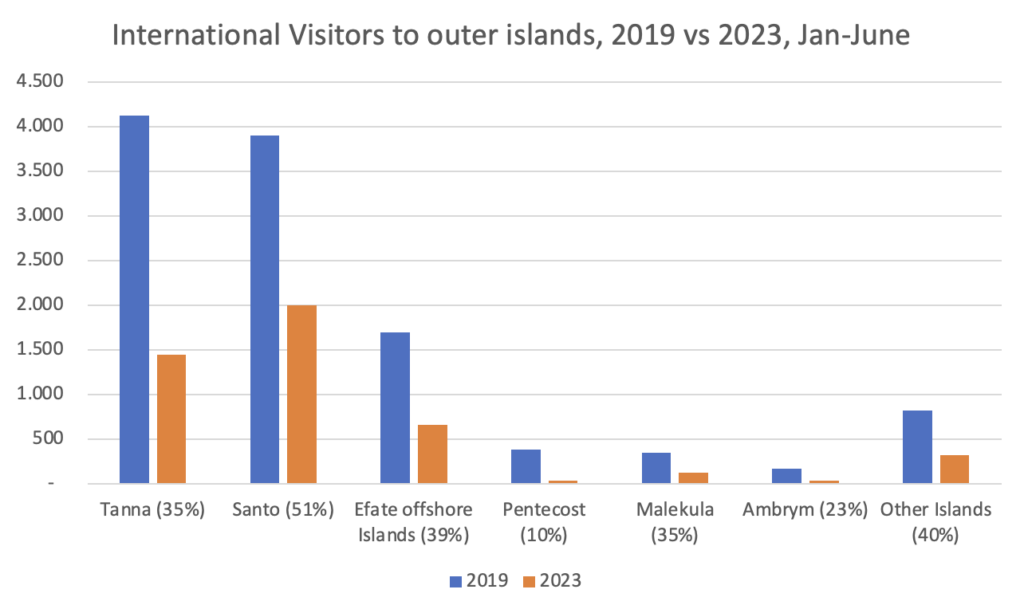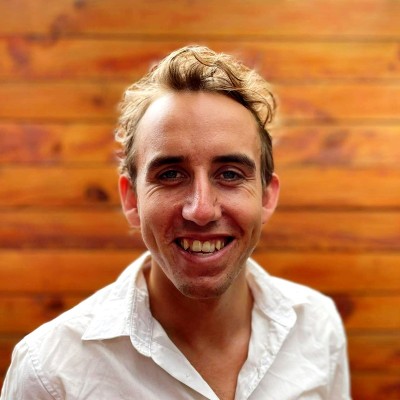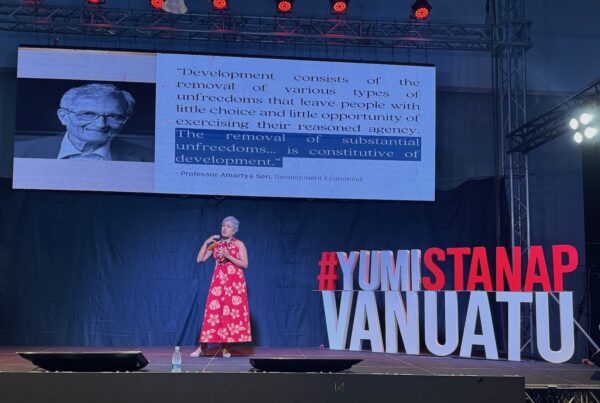By Peter Judge
In early December I had a big report to write, so I took myself off to Ocean View Bungalow on Pele for a week long work retreat, where I had a truly wonderful time. I woke up every morning, exercised and swam, breakfast was ready, and then worked until lunch was served, after which I would have a small siesta, before getting back to the work until it was time for a quick shel in the village, before dinner and reading my book under the stars.
The report I was writing was on behalf of the Vanuatu Chamber of Commerce and Industry. Over the past months, we (PCL) have interviewed representatives of nearly 150 businesses, from 20 vatu mamas on Tanna all the way up to some of the biggest businesses. These interviews have been combined with a survey and other economic data.
The report will be released in early 2024, but there were a few statistics that really jumped out. The first is that real GDP/capita is 11% lower than in 1979, and just 3% higher than in 1980. The second is that in the first seven months of this year, fuel imports were 80% higher than total merchandise exports.
Looking forward, forecast real GDP growth is 2.9% over the next decade, even as the population is expected to grow by 2.3% each year. These statistics do not point to Vanuatu being on the pathway of achieving sustainable and equitable development. Growth simply must be higher over the next decade.
This is particularly true given the ever-growing threat and impacts of the climate crisis, the increasingly uncertain and dangerous geopolitical context, and the pressing need to create jobs for Vanuatu’s youth.
To achieve this growth then substantially higher beneficial investment is key – from Government, from domestic businesses, and from foreign businesses. There has been a slight bump in investment as borders have reopened, but it is not enough. To encourage this investment major changes are needed to the business environment to make it far more welcoming and supportive.
To achieve this will require a major effort from across society. Clearly this is a massive and difficult piece of work, but for now I just wanted to share one small idea to get the ball rolling linked to my time in Pele – the ‘remote worker visa’.
Many countries have launched such schemes, and of course anything here must be designed to be suitable for Vanuatu. My suggestion is the scheme should be called the “Very Remote Worker Visa” and open it up to a lottery application, with just 100 visas being issued each year to begin with. The lottery should also be opened for groups of friends to apply together, and should leverage off one of Vanuatu’s biggest comparative advantages – what a wonderful place it is to live.
The limited number is mostly make sure that the remote workers do not overwhelm resources and services – particularly housing which is coming under increasing pressure. It would also mean that it would make it more exclusive and special for those that do come.
Included in the visa should be the cost of their flights at the beginning and end of the year as well as a domestic return ticket to each province from their nominated home province. This would mean the scheme would be expensive and would need a partnership with Air Vanuatu, but it would also mean that these remote workers would be actively encouraged to spend as much time exploring Vanuatu’s beauty, spreading the benefits around the country, and justifying the ‘very remote’ name.
This would also help to provide support to rural bungalows at a time when they desperately need it. In the first seven months of the year, international visitors to the outer islands were just 40% of what they were in 2019. This slow recovery has been devastating for the industry after nearly three years of lockdown. Of course, poor air connectivity has been the major issue, and this must be resolved.

In the first years of this scheme, almost all of the remote workers would choose to be based on Efate, with a small number maybe choosing Santo. The idea would be that they travel to the islands for holidays. As the scheme matures, there is no reason why we could not have individuals or groups spending weeks or even months at a time working remotely from the outer islands– with good internet and ever cheaper solar power making this easily possible.
This would help to address one of the biggest issues for many rural tourism bungalows – low occupation rates. They have infrequent visitors – often only one or two a month – and then they often stay for just one or two nights. With the high costs of building the bungalows, and the increasing costs of running them (particularly with food inflation at 24%) this means that often the economics of bungalows just don’t make sense at the moment. For example, the owner of Ocean View said he made a loss if people only stayed for one night due to the costs of going to Port Vila for supplies.
Imagine instead if they had a group of six friends staying for a month to work. It would completely change the business. It would mean roughly one million vatu going directly into the community. This would allow businesses to hire staff permanently and to buy more from farmers and fishermen, spreading the benefits around. The scheme would also boost demand in Port Vila, create employment (for example for cleaners), boost tax revenue, bring in foreign currency, encourage investment, and boost Vanuatu’s image through a unique scheme.
The scheme should also be very easy and cheap to set-up or scale up, and if it doesn’t work for whatever reason, it can simply be stopped.
Of course, 100 remote workers by themselves are clearly not going to transform Vanuatu’s development. But they could make a small difference, and, if combined with enough other ideas, could be part of that bigger change that Vanuatu needs. 2024 has to be the year that investment gets going in Vanuatu again, and we will need every idea to achieve that.

Peter Judge is Director of Economics and Research at Pacific Consulting Limited and author of the recent VCCI Private Sector Economic Outlook.





